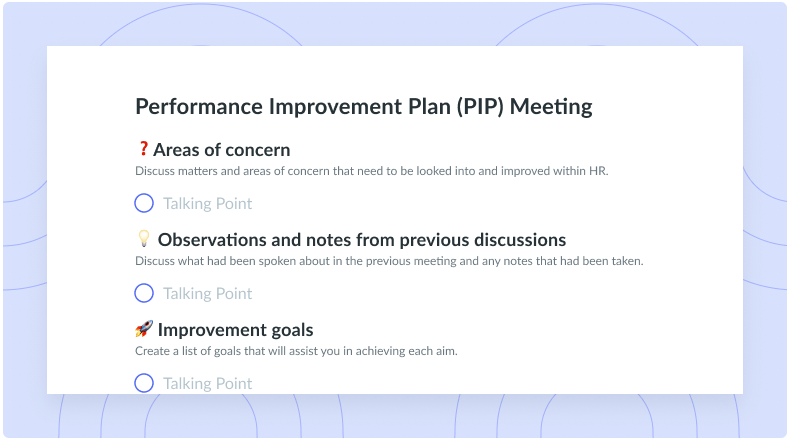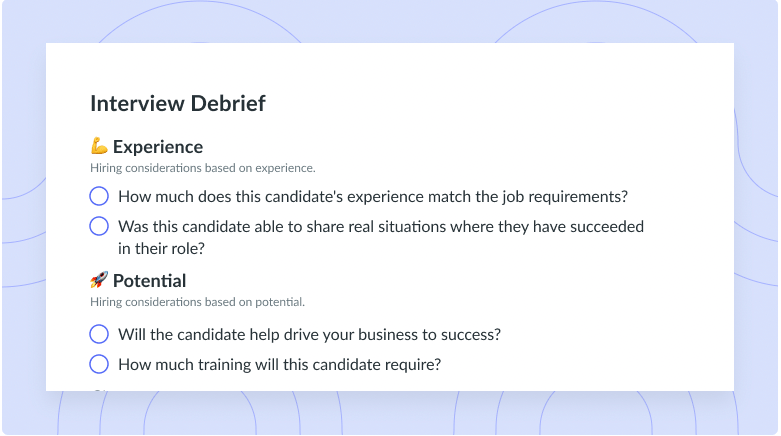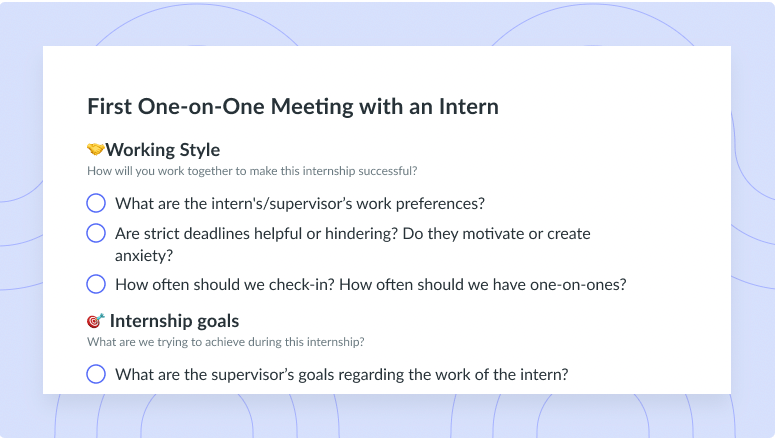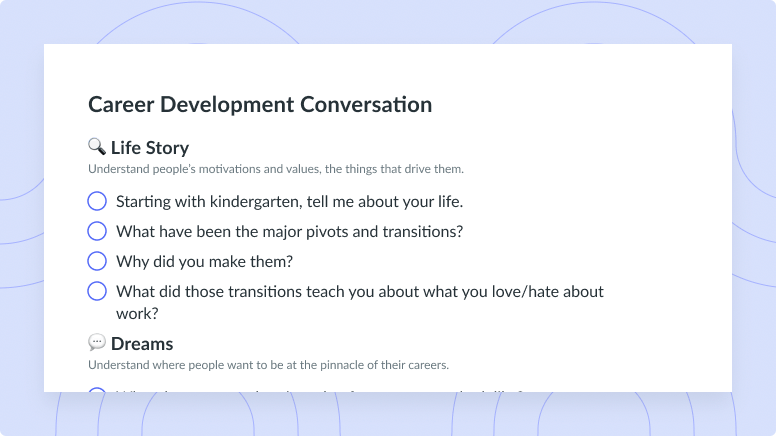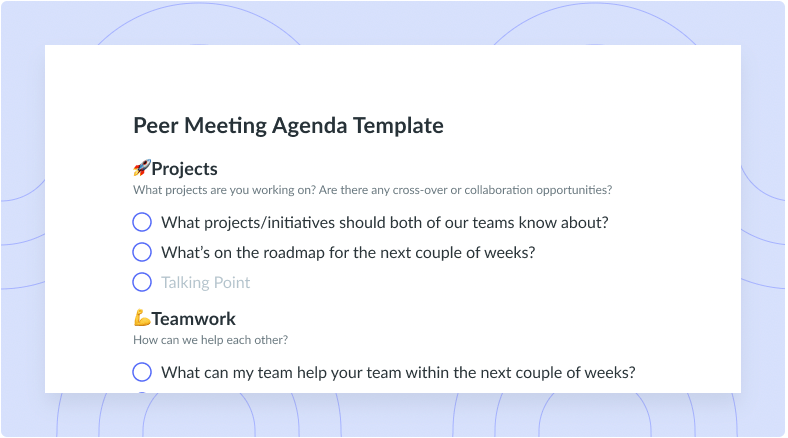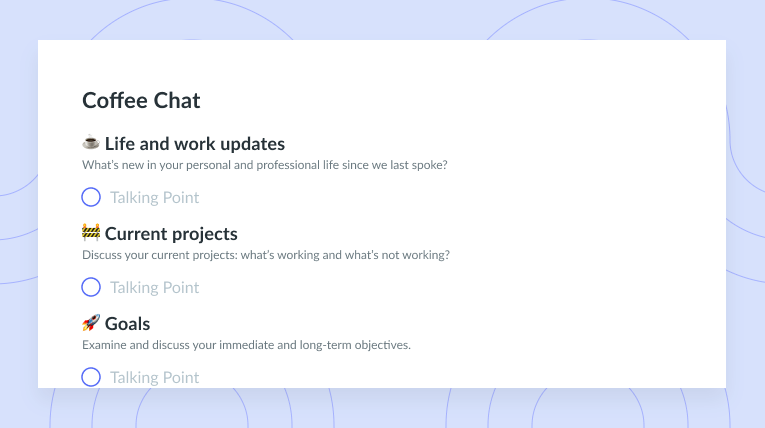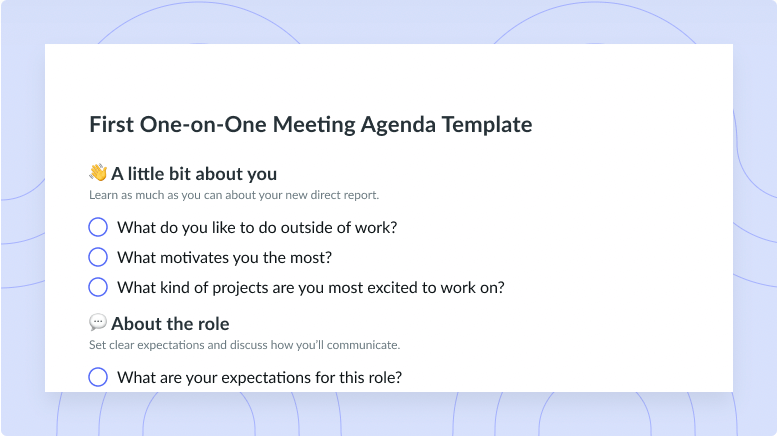
Exit Interview Template
Get this templateGather honest feedback about company culture, team morale, and your management style by asking departing employees these exit interview questions.


An Exit Interview can be seen as a difficult conversation
For that reason, we’ve created an exit interview template for managers, consisting of questions and exit interview tips that will provide you and your team with valuable feedback and highlight areas for improvement within the organization. This exit interview template will also determine how you can mitigate future turnover rates.
Why are Exit Interviews important?
In a 2016 Harvard Business Review article, Everett Spain and Boris Groysberg argue that:
“Exit Interviews can promote engagement and enhance retention by signaling to employees that their views matter. And it can turn departing employees into corporate ambassadors for years to come.”
With the right exit interview template, you can enhance career development practices, solidify company culture and uncover any issues you may not be aware of.
Before you begin, it is incredibly important to treat your employee with respect and gratitude for their time with the company. Creating a safe space to have this discussion will allow your employee to feel more open, honest and comfortable, which will produce a more beneficial outcome for both of you.
Now, here are some of the questions we’ve included in this exit interview template:
What’s inside this Exit Interview Template:
1 What made you start looking for another job?
It is critical to understand the reason why your employee is looking for a new job. It is likely that their leave has nothing to do with the company and that they have simply found a more attractive opportunity, such as better compensation, a shorter commute or a means to shift their career into a different industry.
If your employee leaving is not due to personal reasons, it is a great opportunity to learn about HR benchmarks in other organizations such as pay, benefits and culture. By asking questions about their new employer, you will gain valuable insights on competitive advantage in your industry and identify means to create more attractive opportunities for future employees.
2 Did you feel equipped to do your job well?
This question opens the conversation to understanding the efficiency of your onboarding process. By listening to your employees’ experience, it allows you to identify areas of growth for your onboarding process and for training and development. Understanding the learning curve that your employees have faced in their role can improve your training approach for future employees. The more equipped your employees feel to do their job well, the higher the retention rate you will see within the organization. By adding this question to your exit interview template, you will become more prepared to support future employees.
Some follow-up questions on this topic can include:
– How did you find the onboarding process?
– How could we better equip future employees for success?
– Did you find the training materials/ resources to be sufficient?
– What additional resources would have been helpful?
3 Did you receive enough feedback to help you improve your performance?
By asking this question, you are identifying ways to improve your focus on development initiatives and how to better motivate your employees. Feedback can be constructive or it can be positive recognition – in both cases, it is crucial to employee development.
4 How would you describe our team culture?
Understanding how your employees view your team culture will assist you in identifying trends. When you begin to keep track of exit interviews, trends about company culture will separate legitimate concerns from a personal opinion.
Understanding your employees’ perspectives on your team culture can also strengthen your brand. It is important to solidify the attitudes, behaviours and values that your group shares. This way, you ensure that the team is collectively working towards a common goal. The company culture as a whole typically influences your team culture and so gaining these insights will be valuable to share with your counterparts throughout the organization.
5 What’s something I could’ve done differently, as your manager?
It is important to be aware of your management style to have the ability and awareness to tailor your approach to each of your employees, ultimately identifying a method that is effective for both of you. Your employees’ feedback on your leadership style is an opportunity to grow in your position as well. The more receptive your employees are to your management approach, the more productivity and positive output you will see from your team.
This question may also raise larger management issues that you may not be aware of and motivate you to tackle larger organizational concerns for the betterment of the company.
6 Are there any other issues or feedback you’d like to address?
Asking this open-ended question is an invitation for your employee to discuss any other topics that they feel are important to them, which may not have been a part of your exit interview checklist.
With the right approach to exit interviews, your organization can create advocates for the organization by treating your prior employees with respect and gratitude for their time and efforts. By doing so, you are fostering a positive reputation for both yourself and the company as a whole. Moreover, it is a great opportunity to gain insights on current employee satisfaction, to improve learning and development initiatives and to understand the competitive employment landscape in terms of what other companies in your industry are offering their employees.










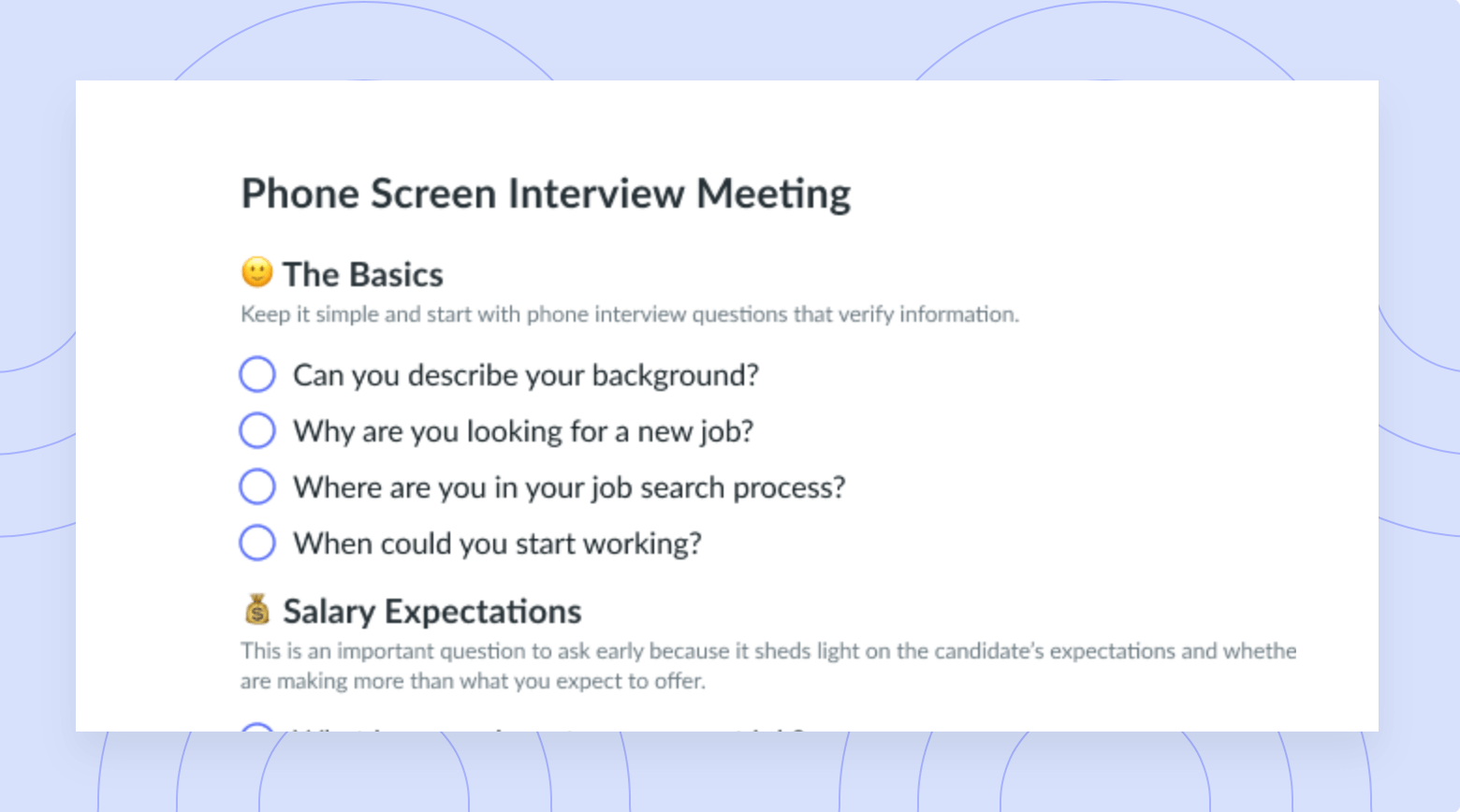
![Incoming Client Interview [Legal Clinic] Template](https://fellow.app/wp-content/uploads/2021/09/Incoming-Client-Interview-Legal-Clinic-preview.png)
